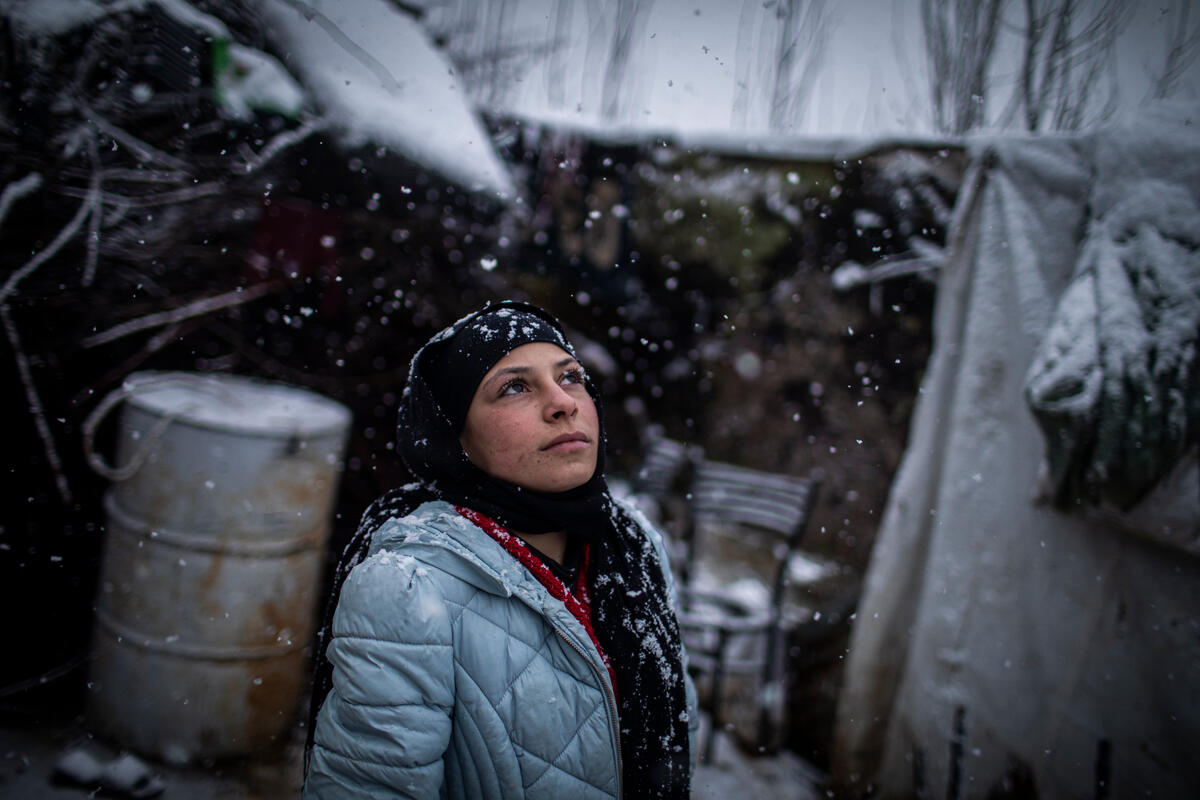Resettlement a final hope for quadriplegic Syrian siblings
Sitting on the edge of her bed, Maysaa counts off the chores on her fingers: wake the children, change their diapers, bathe and feed them. Her tasks seem typical for a mother caring for her children in their toddler years, except that hers are 35 and 23.
Wafika and Taha, two of Maysaa’s six children, were born with cerebral palsy, a neurological condition that affects their sight, speech and hearing, as well as the movement in all of their limbs.
“When I get sick and I can’t care for them, I feel very hopeless. I like to give them everything they need,” Maysaa says.
Originally from Damascus, Syria, Maysaa, husband Samir and their children led a simple life. Samir drove a truck at construction sites, which was enough to put a warm meal on the family’s table and cover the costs of caring for their children. The family were also able to rely on practical support from family and friends.
But after conflict erupted in 2011 and the situation in Syria grew more precarious, the family was forced to move repeatedly.
After narrowly escaping shelling in 2013, the family sought refuge in Egypt, settling in the outskirts of Greater Cairo, where caring for Wafika and Taha has become more challenging.
Refugees with disabilities can be among the most marginalized, and their vulnerability is often exacerbated by forced displacement. Isolation and perceptions that they are a burden can compromise their dignity, safety, security and access to services.
Despite recent measures to increase accessibility for persons with disability, many buildings and streets in Egypt are still not equipped with basic features such as ramps and accessible entries, including the area where the family currently lives – making life more difficult for Wafika and Taha.
"Roads here are not equipped with support for wheelchair users"
“It is hard to move them in the wheelchair because the roads here are not equipped with support for wheelchair users,” Maysaa explains. For Wafika and Taha, this has meant being confined to their modestly furnished apartment with little chance of enjoying simple things like soaking up the sunshine and feeling the breeze on their faces as they did back home.
“In Syria, we used to take them to the park or the beach every other week,” Samir says. “We would feel them getting better and they would laugh. Last year, my brother invited us to the beach and they were over the moon.” It was the only such trip they have made in their six years in Egypt.
Restricted mobility is just one of the challenges that the family experiences in caring for their children. Despite receiving monthly cash assistance from UNHCR, the family lives on US$376 a month and struggles to make ends meet.
Egypt currently hosts more than 244,000 registered refugees and asylum-seekers. More than half are from Syria, and most are considered very vulnerable. Nearly 85 per cent of households lack the basic resources to meet their daily needs and often resort to borrowing from neighbours and friends.
Faced with multiple challenges, Maysaa pins her hopes for Wafika and Taha on resettlement to a third country where they can find the specialist care they require.
"They need experienced caregivers"
UNHCR has limited resources to provide specialized care for those with disabilities in Egypt, and many refugees therefore see resettlement as their only option.
‘’They need experienced caregivers and special community centers that can assist,” she says, her anguish at not being able to meet their needs clearly visible. “They are a piece of my soul. I’d give [them] my eyes if I could.”
Increased resettlement places would not only provide life-saving protection and solutions for those being resettled, but also free up resources for UNHCR to do more for those remaining in countries of asylum around the world.
In 2017, there were 19.9 million refugees of concern to UNHCR worldwide, of which 1.2 million were in need of resettlement. However, close to 75,200 resettlement places were made available—a 54 per cent drop compared to 2016 (163,200).










